Continuing attempts to change public behavior with respect to engine idling continues. From NYC to Australia more people understand the benefits of breathing clean air.
As of June 19, 2019 clicking on the image below will bring you to the DEP form to report idling vehicles. You also have the option of following the instructions to collect a percentage of the fine in exchange for helping all of us to breathe a little easier – and to change our culture for the better.
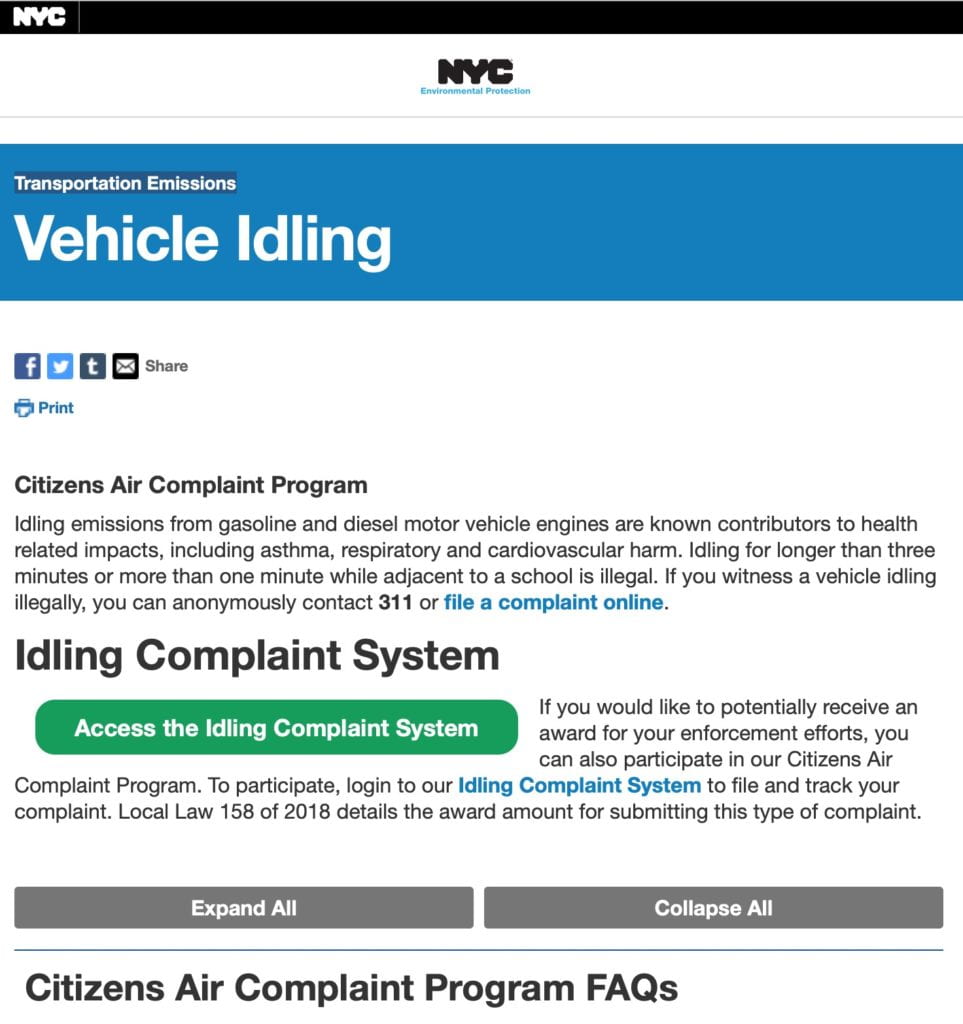
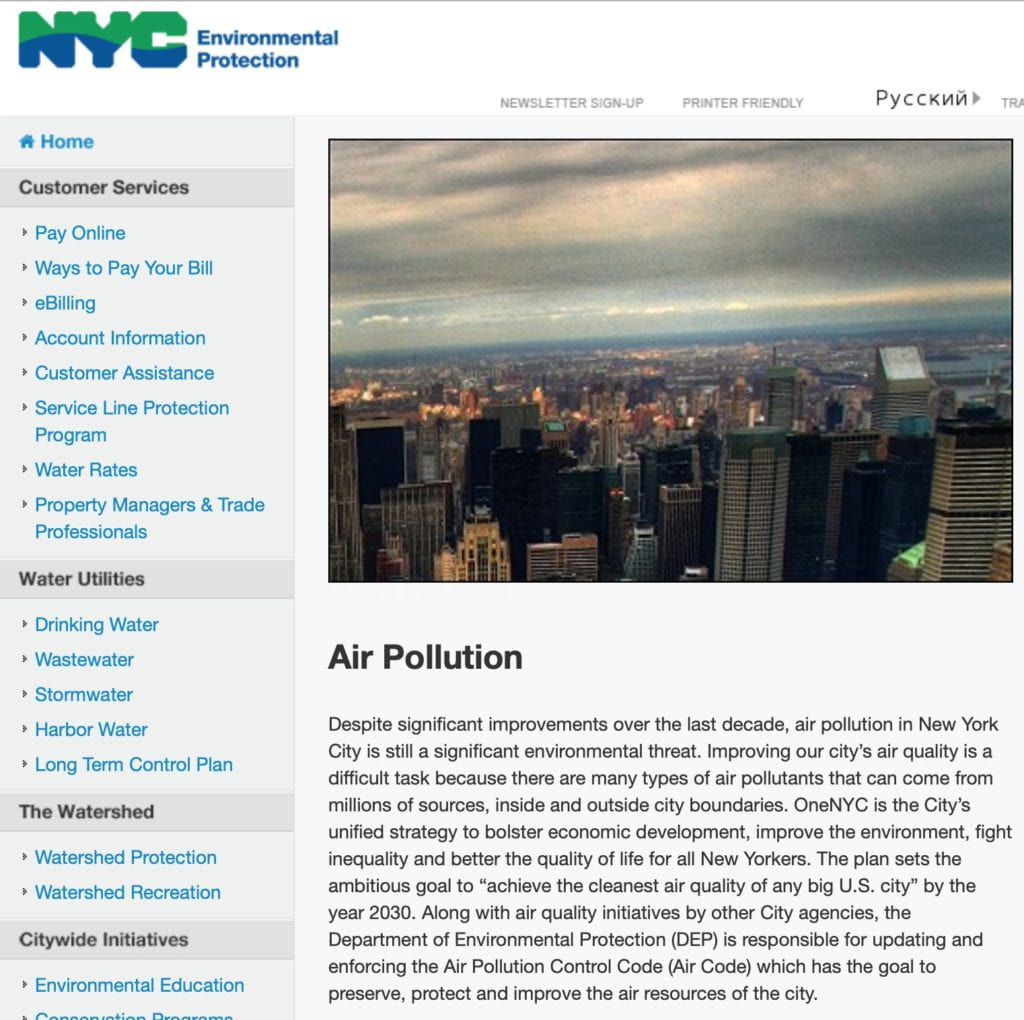
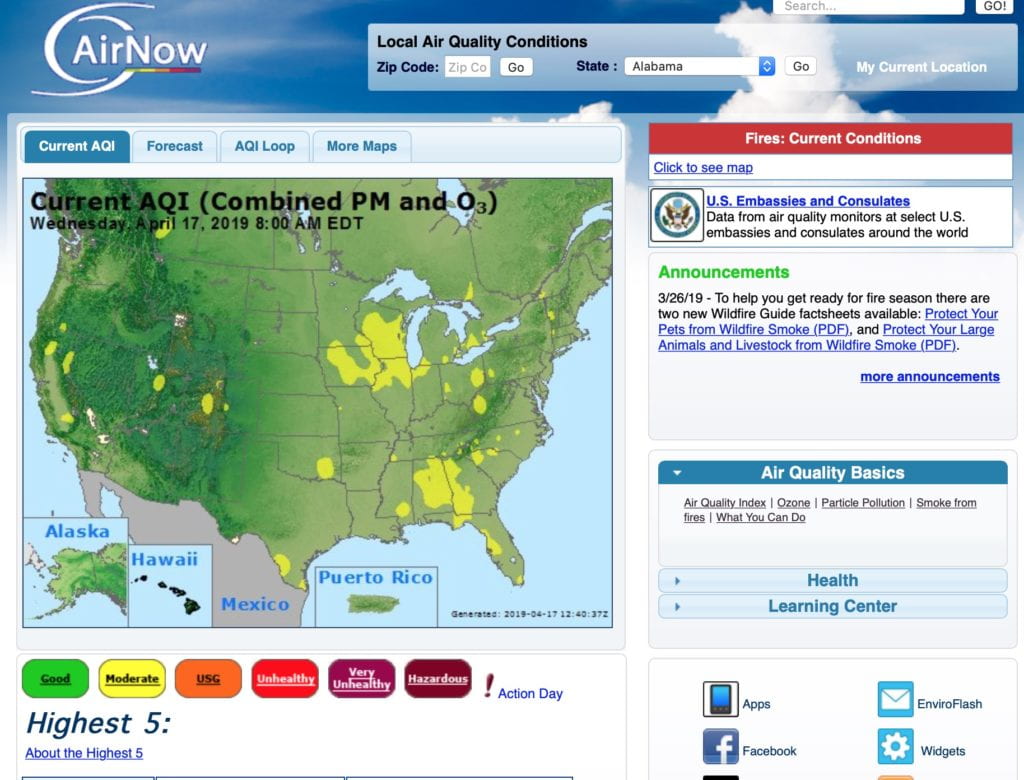
Important new work by Lee Doyle featuring George Pakenham and Dr. Patrick Schnell, with David D. and NYU Professor Peter Terezakis
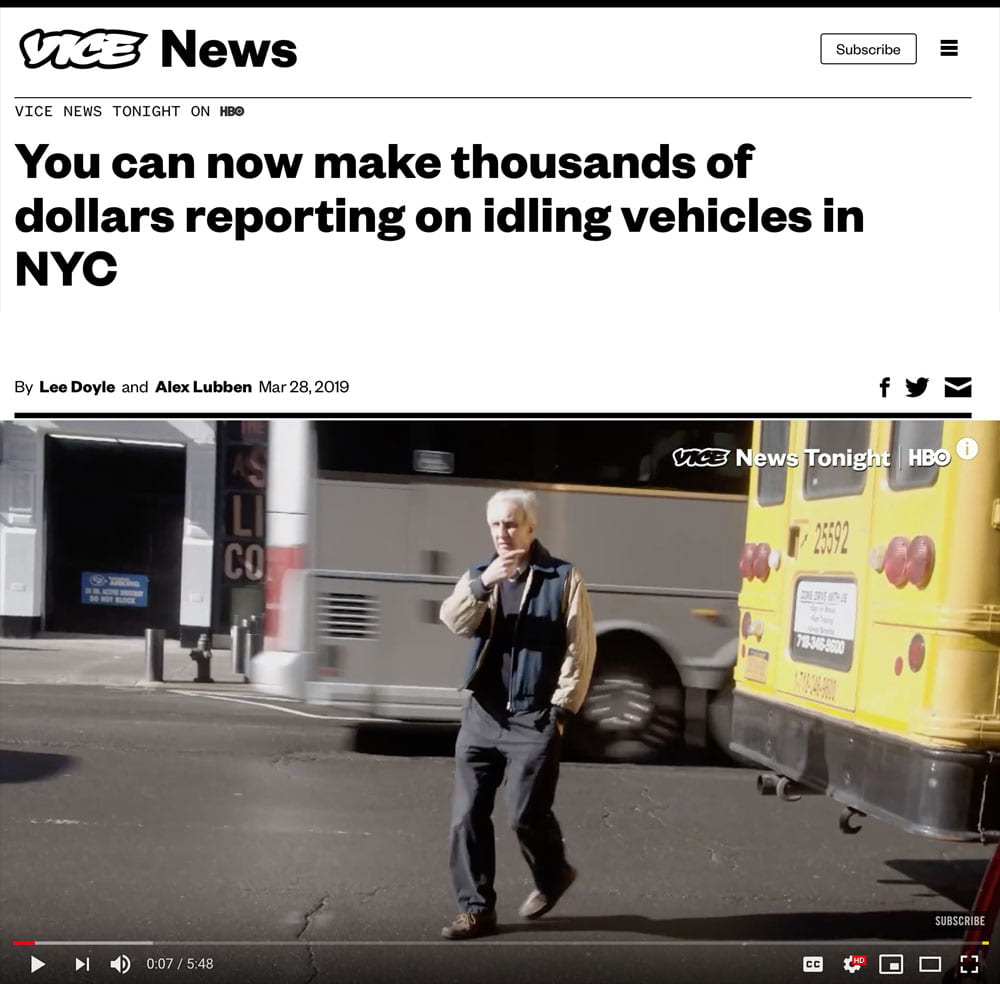
Printable PDF from NYC Department of Environmental Protection:
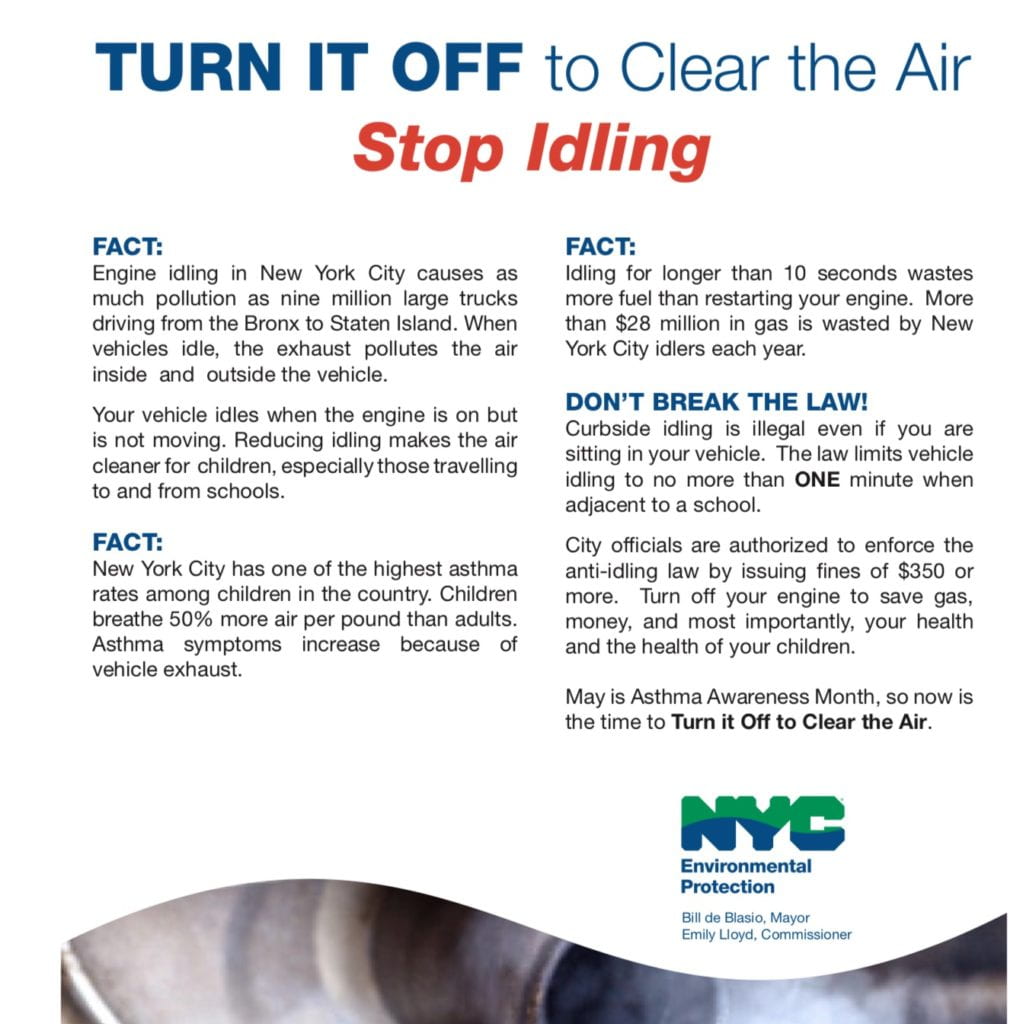
TimeStamp Camera:
Android – iOS
March 26 five minute test shot on the 26th. Unmodified (1280 x 720) the file was 124mb at 12fps (frames per second).
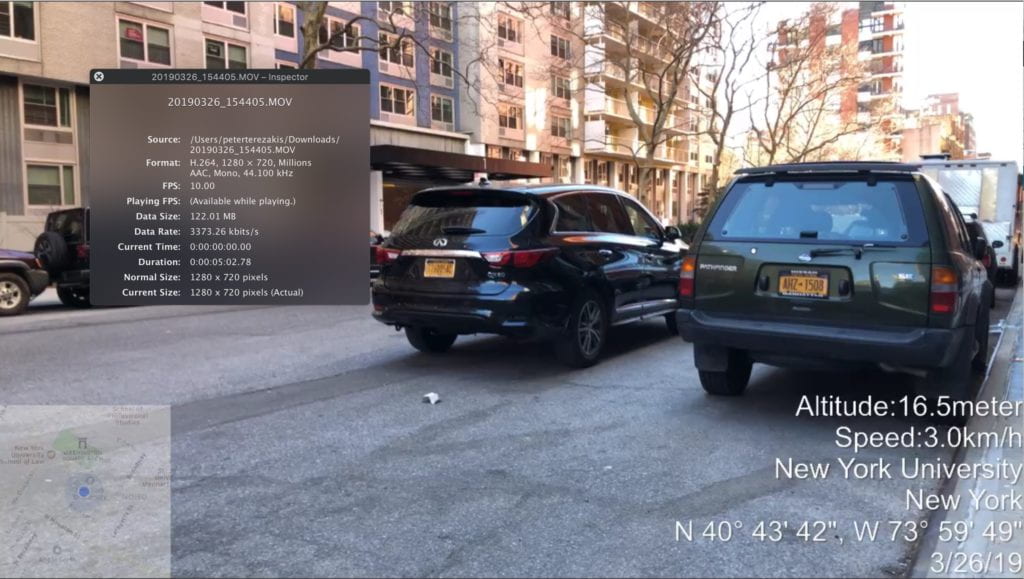
_____________________
Resizing to 640 x 480 the same video became 17.33 mb when trimmed to 3 minutes.
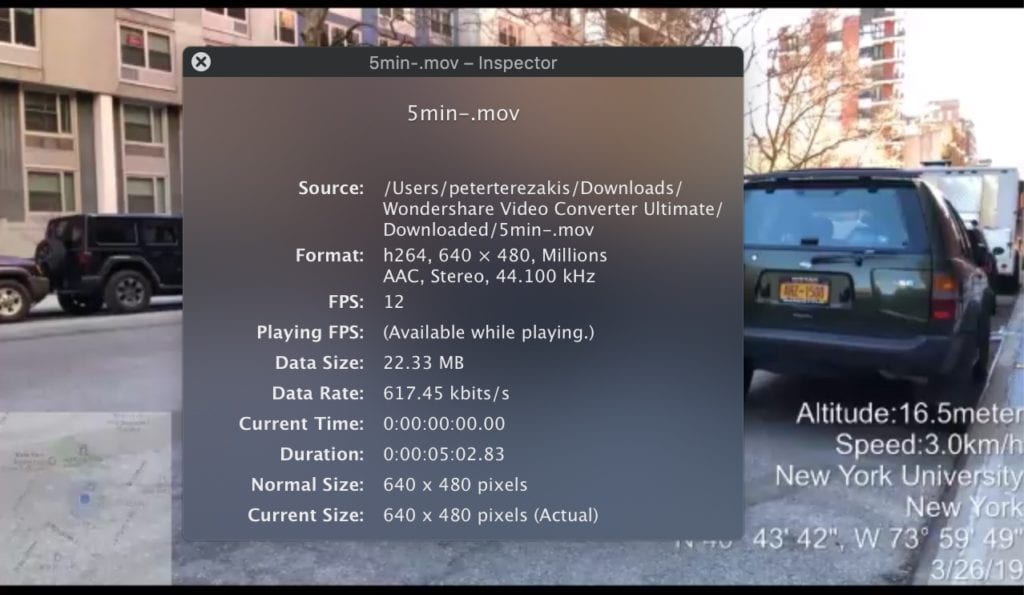
This six minute video was shot with an iPhone X using TimeStamp Camera Pro. Out of camera, resolution is 1280 x 720 the size of the file is 469.15 MB (before uploading and compression).
Rescaling the video (using Quicktime 7) to 480 x 500 resulted in a 33.70 MB file.
The timestamp information is still clearly legible:
The original 469 MB file was also uploaded and processed for free on YouTube in a few minutes::
I also uploaded the source file to a subscription-based Vimeo account:
The original, unmodified source file (.mov) and the resized file (.mp4) are compressed and available here.
— Peter Terezakis
Associate Arts Professor, Tisch School of the Arts
Shortly after moving into NYC I started wondering why people sat around idling their vehicles. Maybe it is because I grew up in suburban-rural areas that I place such a priority on breathing clean air. Or maybe it’s just that I don’t like having to breathe poison gas.
Fast forward a few decades and I met a lone crusader who was actually trying to stop this problem. After meeting George Pakenham and watching Idle Threat I started my own survey of trying to figure out why people idle their vehicles.
Drivers know that they cannot breathe the fumes which are emitted from an internal combustion engine exhaust pipe. Yet people sit around their vehicles and run their engines when they aren’t driving.
Here are some images I have taken with comments (when appropriate). I no longer ask people to shut their engines off as things can escalate very quickly.
Sometimes it is to create their own personal climate. Other times it is to listen to music or charge their phone. Other instances are a total mystery; unless it is simply to run their engines because someone else is paying for gasoline.
Then there are those who know they shouldn’t be running their engines.
— Peter Terezakis, April, 2014